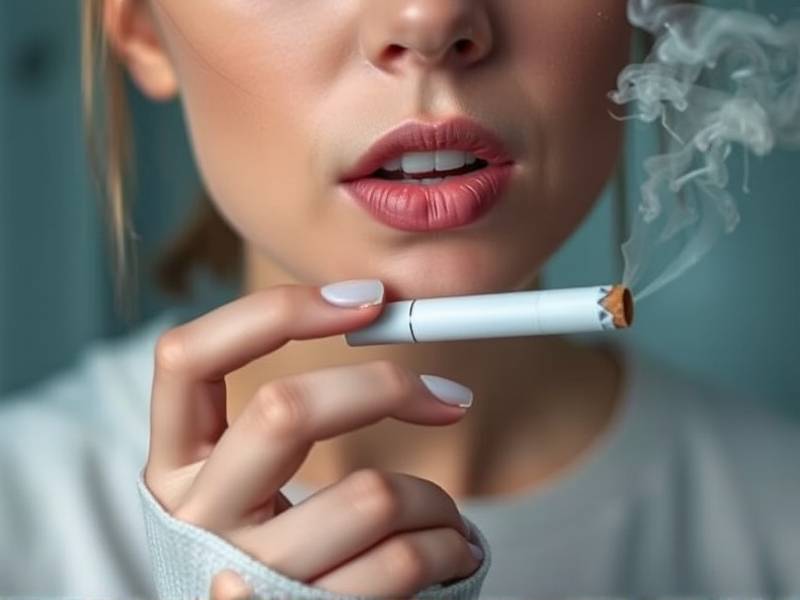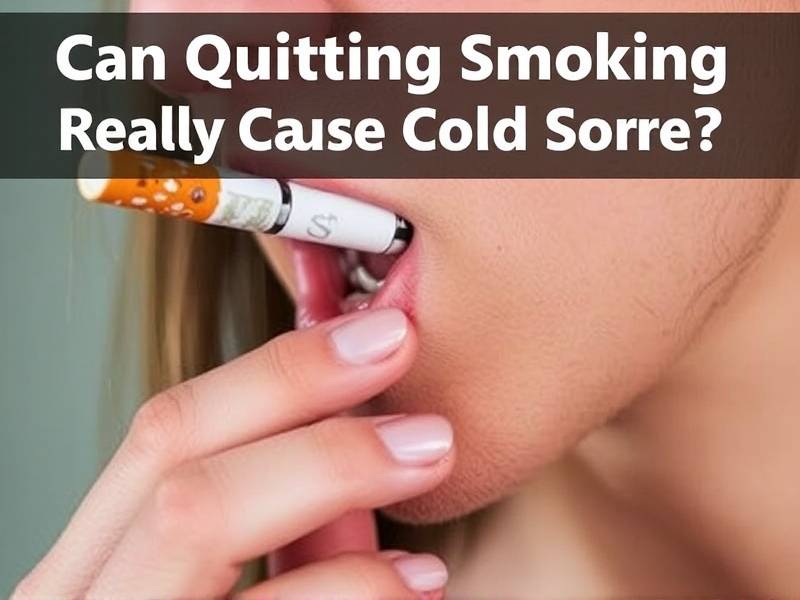Can Quitting Smoking Really Cause Cold Sores?
Can Quitting Smoking Really Cause Cold Sores? Unveiling the Truth
Introduction: Quitting smoking is a significant step towards a healthier lifestyle, but many smokers are hesitant to take this leap due to concerns about potential side effects. One common worry is the possibility of developing cold sores after quitting smoking. In this article, we will delve into the relationship between quitting smoking and cold sore outbreaks, exploring scientific research and expert opinions to provide you with accurate information.
Section 1: Understanding Cold Sores What are Cold Sores? Cold sores, also known as fever blisters, are small, fluid-filled blisters that appear on or around the lips. They are caused by the herpes simplex virus (HSV-1), which can be transmitted through direct contact with an infected person or through objects such as utensils or towels.

Section 2: The Connection Between Smoking and Cold Sores Can Smoking Cause Cold Sores? Research suggests that smoking can increase the risk of developing cold sores. The chemicals present in cigarettes can weaken the immune system, making it easier for HSV-1 to trigger an outbreak. Additionally, smoking can cause dryness in the mouth, which may create favorable conditions for HSV-1 to thrive.

Section 3: Quitting Smoking and Cold Sores Does Quitting Smoking Trigger Cold Sores? While some individuals may experience an outbreak of cold sores after quitting smoking, it is not a universal occurrence. The reason behind this lies in the body's adjustment period after nicotine withdrawal.
Nicotine Withdrawal and Immune System: When you quit smoking, your body goes through nicotine withdrawal. This process can temporarily weaken your immune system, making you more susceptible to infections and outbreaks like cold sores. However, this phase is usually short-lived.
Section 4: Managing Cold Sore Outbreaks After Quitting Smoking Tips for Preventing and Treating Cold Sores:
- Maintain Good Hygiene: Regularly wash your hands and avoid touching your face with unwashed hands.
- Boost Your Immune System: Eat a balanced diet rich in fruits, vegetables, and whole grains.
- Stay Hydrated: Drink plenty of water to keep your mouth moist.
- Use Over-the-Counter Medications: Antiviral creams or ointments can help alleviate symptoms and speed up healing.
- Consult a Healthcare Professional: If you frequently experience cold sore outbreaks or if they persist for an extended period after quitting smoking, it's advisable to seek medical advice.
Conclusion: Quitting smoking is a commendable decision that offers numerous health benefits. While there may be concerns about potential side effects like cold sore outbreaks after quitting, understanding the relationship between smoking, immune system weakness, and HSV-1 can help alleviate these fears. By adopting healthy habits and seeking appropriate treatment when needed, you can minimize the risk of cold sore outbreaks while enjoying a smoke-free life.
